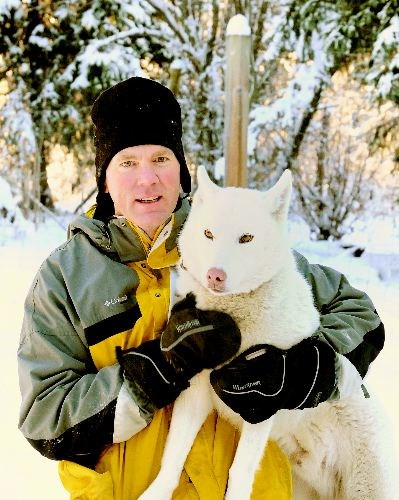In the wake of an alleged slaughter of dozens of sled dogs, an area member of the sledding industry says she reluctantly backs a government examination of the incident.
Sally Swan, owner of Dogpower Adventures at Chief Lake, agrees with Premier Gordon Campbell's move to set up a task force into the controversial cull as long as its members are credible and look at all sides of the issue.
Headed by Kamloops MLA Terry Lake, a veterinarian, the task force panel is charged with examining the circumstances leading up to the alleged slaughter of 75 to 100 sled dogs in April 2010 as well as the responsibilities and regulations governing the dog sledding industry.
"Any situation can be looked into to see what's going on, but I think it could have a huge impact on dog sledding," said Swan.
"We don't want people to be so afraid of repercussions that they shy away from the sport or start reducing their kennels."
Prince George musher Rob Bryce also has mixed feelings about a politically-led task force study into what he says is an isolated case.
"I always get upset when I see politicians doing big reports that either get folded away on the shelf or are not enforceable" said Bryce.
Reports say the age of the dogs and concerns about their quality of life may have influenced the decision to have them killed. Bryce said he didn't see the rationale and he knows of several kennels with dogs of all ages.
Bryce added he met Bob Fawcett, the man linked to the alleged cull. Fawcett managed Howling Dog Tours amd contracted them to Outdoor Adventures, the firm at the centre of the controversy.
"I think this occurrence was all about downsizing and not at all about the love of the dogs," he said.
Bryce added Fawcett had 300 dogs "well before" the Olympic Games. Reports suggested a downturn following the Olympics was another influence behind the alleged cull.
But he said the cost of the provincial study would be better spent funding for the SPCA investigation.
Swan, whose company does an average of four tours a week with teams of four or six dogs pulling sleds of people from all over the world, was concerned the Whistler incident could trigger some sort of ban on dog sledding.
"This is just one company," said Swan. "If dog sledding was banned from the tourist industry, there are thousands of sled dogs in B.C. that would have to be gotten rid of. They are all kennel dogs, not house-broken dogs, so where would they go?
"I estimate that maybe 50 per cent could be rehabilitated as pets. These dogs are bred to run and it's hard for them to settle down."
She added there is seldom a problem with kennels of 25 or less dogs, but when the numbers reach 60 to 100, problems can occur.
Bryce owns 13 sled dogs that are run for outings of family and friends.



